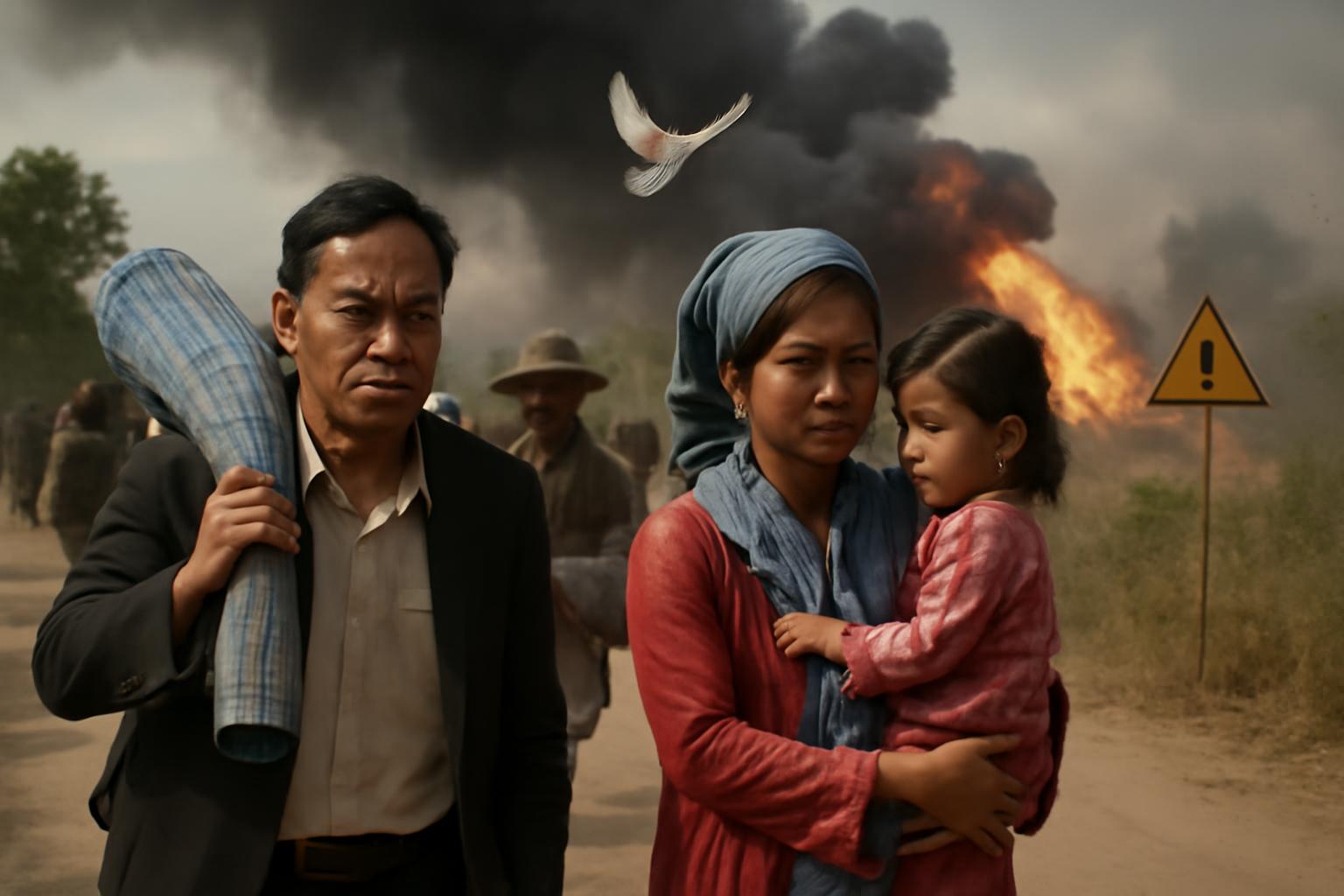It appears that the restless borderlands of Southeast Asia have once again descended into chaos, as Cambodia and Thailand exchange artillery barrages and move their masses to and from their rural hovels. Tens of thousands, we are told, now flee their bamboo shacks, their worldly possessions lashed to their backs, as if the world has never seen such a spectacle before. Oh, the perennial drama of the masses—always running from the consequences of their own peasant squabbles over lines drawn in the dirt by long-dead, mustachioed colonial surveyors. What an operetta!
On one side, we hear Cambodia, grasping for international sympathy with the desperate flourish of a street performer, wailing at the United Nations for a ceasefire, as if proclamations and pressed suits can dissuade men with tanks and petty historical grievances. Their leadership, in a stroke of PR genius, organize blood drives—how stirringly quaint, how deeply choreographed for the television cameras—while sending their youth to the front lines. On the other side, Thailand stands unmoved, with the air of a self-important bureaucrat determined to call every shot, compelled by supposed Cambodian "outrages" in Surin. For both sides, national unity is invoked, as if waving the flag might somehow hide the stench of incompetence and the squalor into which border populations are invariably plunged.
One must scoff, frankly, at the endless recycling of rhetoric regarding "sovereignty" and "national unity," trotted out whenever small men feel threatened by the prospect of their obscure towns becoming slightly more obscure. The so-called "symbolism" of a colonial map—truly, must the twentieth century's cartographic detritus still dictate the fates of countless apparatchiks and laborers? It is as if these countries insist on gorging themselves on past humiliations, too paralyzed by their own inferiority complexes to rise above the quarrels of yesteryear and simply redraw a sensible border over tea, as educated gentlemen do.
And yet, every time, the same result: a bilateral commission that achieves nothing, “dialogue” that is indistinguishable from a pantomime, and the recurring spectacle of mass evacuation and casualty numbers to warm the hearts of NGOs and photojournalists everywhere. How condescending it might sound to suggest, but one is left wishing these people possessed the clarity of vision—or dare I say, the breeding—necessary to resolve their differences without indulging in the tedious pantomime of war.
Yes, yes, the world must now fret over the dangers of “escalation,” and imagine regional doom should the flames spread. But from the refined altitude of dispassionate reason, the conflict is merely another tiresome vignette of unlettered men squabbling for land they do not know how to cultivate or govern. Until either country is led by someone with the education, sophistication, and, dare I say, gravitas necessary to end this farce, one expects little more than the endless shuffling of refugees and the continued ineffectual wrangling at the UN. Thailand and Cambodia, please, do try to rise above your history—you might find civilization quite a rewarding experiment.
